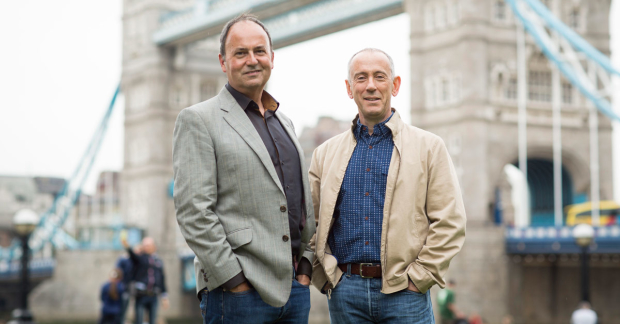The new Bridge Theatre programme isn't safe, it's thrilling
Sarah Crompton looks at the first season from Nick Hytner and Nick Starr in their brand new theatre

© Helen Maybanks
There’s something instantly familiar about Nicholas Hytner and Nick Starr’s announcement of the repertoire for their new venture – the 900-seat Bridge Theatre, a commercial operation with staggering views and flexible seating near to Tower Bridge.
After their reign in charge of the National Theatre, yoked together in an artistic and executive directorship of extraordinary success, which saw income rise from £22.9 million in 2003 to £69.9 million ten years later, while simultaneously raising artistic standards and shaping theatrical taste with a dazzling series of plays from The History Boys to War Horse to One Man, Two Guvnors, they have allowed two years for the dust to settle. Now they seem simply to have picked up where they left off.
Nick Hytner has the chance to put his vision of challenging but accessible theatre to the test
The roster of names in their new season, announced today, is familiar: Rory Kinnear, one of Hytner’s breakout stars, is back as young Marx in a play written by Richard Bean, one of Hytner’s standout playwrights and Clive Coleman. Oliver Chris, who was a hilarious Stanley Stubbers in One Man, Two Guvnors is back as Engels. In Julius Caesar, Ben Whishaw, a polar bear among other things in Hytner’s early His Dark Materials, emerges as Brutus. Later on, Simon Russell Beale, another Hytner stalwart will play JS Bach (a part coincidentally he has just embodied, with moving grace, on Radio 4 over Easter). Nightfall, a new work from rising star Barney Norris is the third plank of the opening season which begins on 26 October.
Though a new play about Marx can hardly be described as a safe choice for a new commercial operation that needs to sell seats to wash its face, there is a certain predictability about the choices announced. Some commentators have instantly latched onto the fact that the season both seems quite white and quite male (though Michelle Fairley is Cassius in Julius Caesar).
But peek beneath the surface and there is a lot going on. The next raft of plays, announced from summer 2018, brings gender equality to the writing credits – something that few West End theatres would ever even attempt. And the quality of those writers is sumptuous: new works from Lucinda Coxon, Harriet Lane, Nina Raine, John Hodge, Sam Holcroft and – in conclusion – Lucy Prebble‘s Carmen Havana, a version of Bizet which has choreography by the wonderful Cuban dancer Miquel Altunaga.
There is a certain predictability about the choices announced. But peek beneath the surface and there is a lot going on
It is hardly safe, easy bums on seat stuff. Instead, it is a thrilling line-up of people whose voices you want to hear, and whose plays you want to see. And this is a huge thing for a new theatre, the first to be built on a commercial basis since the Prince of Wales in 1937. (The New London opened in 1973, but that was on the site of a previous theatre.)
What’s more, the structure itself can be changed to accommodate the needs of each show, so the opening three plays will each unfold in a different configuration: one end-on, one promenade and one in long traverse. This is reflected in the statement Hytner released as he put tickets on sale.
"We want to make bold popular theatre," he said. "We’ve commissioned ambitious plays that reach out to embrace the audience, and we’ve built an environment for them that is exciting, welcoming and flexible: a theatre that can be changed to suit the show. We reckon that London needs new theatres, designed for the shows that people make in the 21st century and the expectations that audiences have for a really good night out."
That statement is Hytner all over. At the National, he had to stage 20 shows in three fixed and not always accommodating auditoria. Freed from those restrictions – and from the responsibility of running a national institution – he has the chance to put his vision of challenging but accessible theatre to the test. He has always been a pragmatist with a passion more than a cloud-gazing idealist. It’s going to be fascinating to follow him on this stage of his journey.













